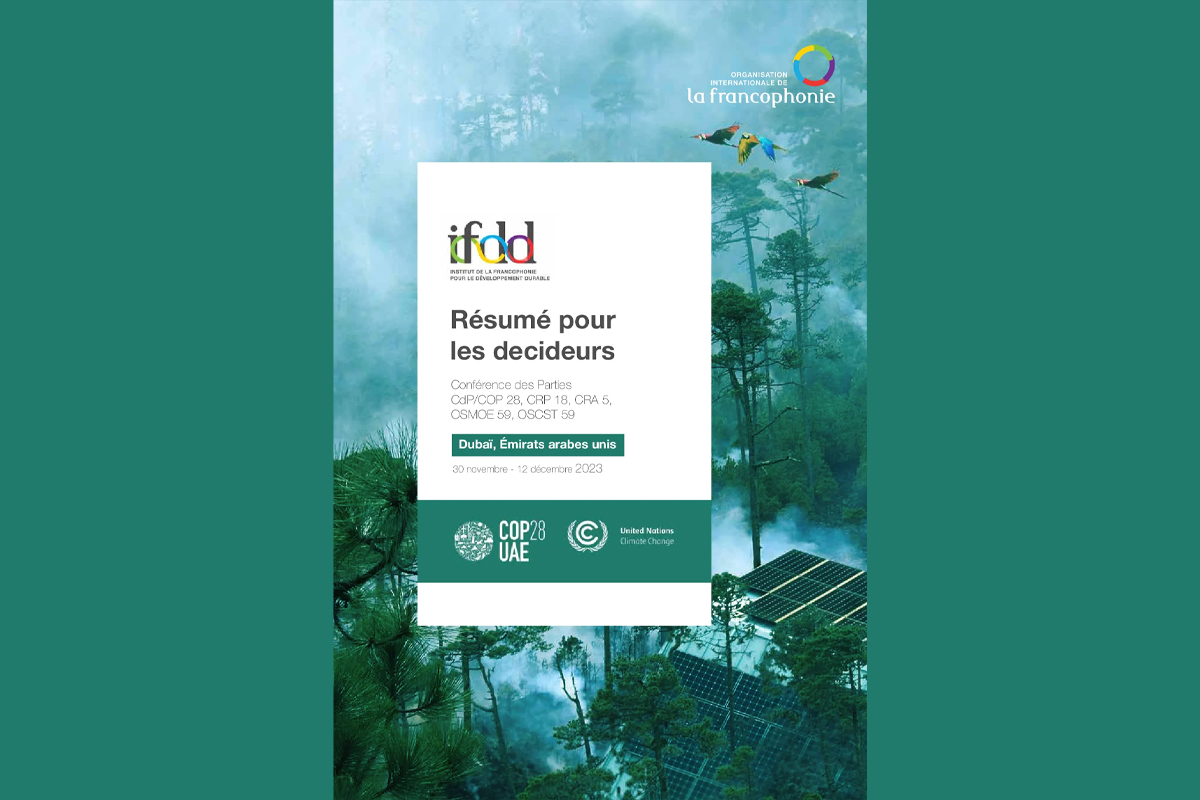Context
This technical note is produced by ENERGIES 2050 on behalf of the Institut de la Francophonie pour le Développement Durable (IFDD), a subsidiary body of the International Organization of La Francophonie (OIF). It is part of our program to support climate negotiations and climate negotiators. ENERGIES 2050 has produced the Climate Negotiations Guide, its Summary for Decision-Makers and Technical notes accompanied by capacity-building programs on behalf of the IFDD since COP 20 in Lima in 2014.
This 42-page technical note in French presents the main results of the 28th Conference of the Parties (COP 28) was held in Dubai from November 30 to December 12, 2023 under the presidency of the United Arab Emirates. The conference hosted several key decision-making bodies, including the 28th session of the Conference of the Parties (COP) to the United Nations Framework Convention on Climate Change (UNFCCC), the 5th session of the Conference of the Parties serving as the Meeting of the Parties to the Paris Agreement (CMA 5), and the 18th session of the Conference of the Parties serving as Meeting of the Parties to the Kyoto Protocol (CMP 18). The event brought together over 97,000 participants from a wide range of backgrounds, including heads of state and government, NGOs and business.
The summit took place against a global backdrop of record temperatures and extreme weather events, underscoring the urgent need to speed up implementation of the Paris Agreement and step up climate ambition. COP 28 thus sought to make progress on key issues such as mitigation of greenhouse gas emissions, adaptation to climate change, just transition, and financing for loss and damage.
High-level political events
The Global Climate Action Summit was held on December 1-2, 2023, bringing together 154 heads of state and 22 international leaders to discuss the implementation of the global climate agenda. Discussions focused on maintaining the 1.5°C target, the energy transition and access to climate financing. Several side events addressed issues such as adaptation in Africa, industrial transition and climate migration. A high-level segment also took place.
Global assessment
The first COP28 Global Assessment, a key milestone in the Paris Agreement, concluded with a formal decision mentioning fossil fuel for the first time. It calls for a fair and equitable transition away from fossil fuels by 2050. Targets include tripling renewable energy capacity and doubling energy efficiency by 2030. This assessment is a catalyst for strengthening climate action at all levels and encourages international cooperation.
Read more on the IFDD website or download the PDF.


